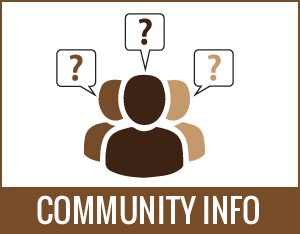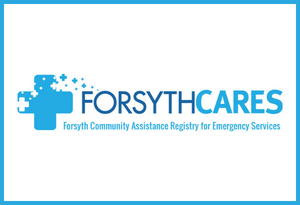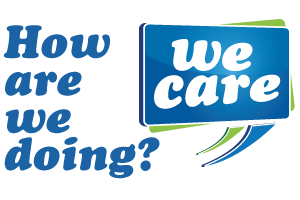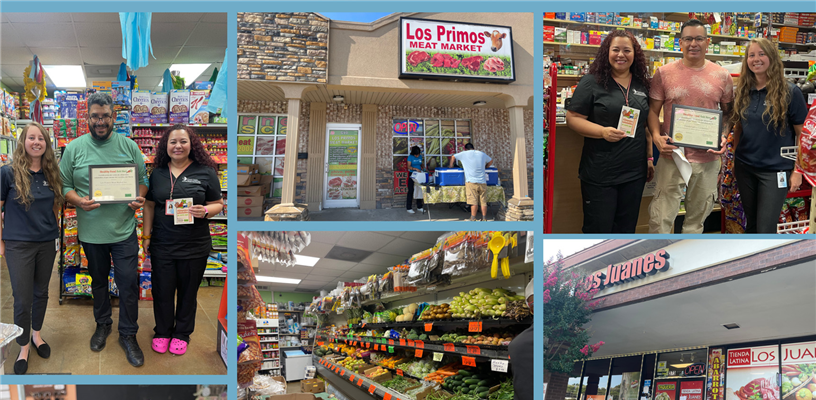
- By Katelyn Johnson
- Posted Wednesday, July 12, 2023
Community Garden Supplying Produce to Food Deserts
See Healthy Communities on Fox8 here.
Food deserts are areas where it is difficult to access and/or purchase healthy foods. Many people located in food deserts are of a lower socioeconomic status and don't have access to a vehicle to drive to a grocery store. They are then forced to visit local convenience or corner stores for food. These stores don't often offer healthy foods, resulting in residents eating a lot of processed and junk foods. This poor diet contributes to the burden of chronic diseases including but not limited to hypertension, cardiovascular disease, and diabetes. According to the 2018 Food Research and Action Center report, Winston-Salem has 21 food deserts and is ranked 7th on the national list for food hardship.
Katie Johnson leads the Healthy Communities program within the Health Promotion Disease Prevention public health team. She is passionate about equal access to healthy foods in all communities, so she restarted the Forsyth County Healthy Corner Store Network. The initiative works by credentialing stores that agree to carry healthy food items. To be a "Certified Healthy Store," a store must carry a variety of fruit, vegetables, whole grains, proteins, low-fat or skim milk, and bottled water. The store must stock a variety of three to four products within each category at all times. The items must also have a reduced amount of sodium or sugar if they are in a packaged form. Once the store carries all required products, Katie applies the store to Eat Smart Move More NC. Stores that are approved will then receive a certificate and door sticker that they may display on the property. In order to be considered for the Healthy Store designation, a store must be located within a food desert, accept WIC and SNAP/EBT, and be under 3,000 square feet.
Katie and Alex maintain two large garden beds located at Simon's Community Garden at the Enterprise Center on South Martin Luther King Drive. The beds house a variety of plants including sweet peppers, zucchini, cucumbers, tomatoes, and sunflowers. They plan on expanding to greens, onions, potatoes, and more in the fall. They hope to harvest at least 300 pounds of produce by May 2025. The donation of this free produce to stores within food deserts in Winston-Salem allows residents to have increased access to fresh, nutritious food. Citizens don't have to worry about wasting their money on a new vegetable they may or may not like, which often deters them from trying something new. Storeowners have decided to help with this mission by moving some of their own surplus produce into the free basket as well. Katie and Alex hope that this initiative will increase healthy habits of Winston-Salem food desert residents and reduce the burden of chronic disease.
Katie has received certification for three stores in the summer of 2023. The store names and locations are listed below. She hopes to receive certification for at least five more stores in 2023.
Los Primos Meat Market Inc. - 640 E Monmouth St Winston-Salem, NC 27107
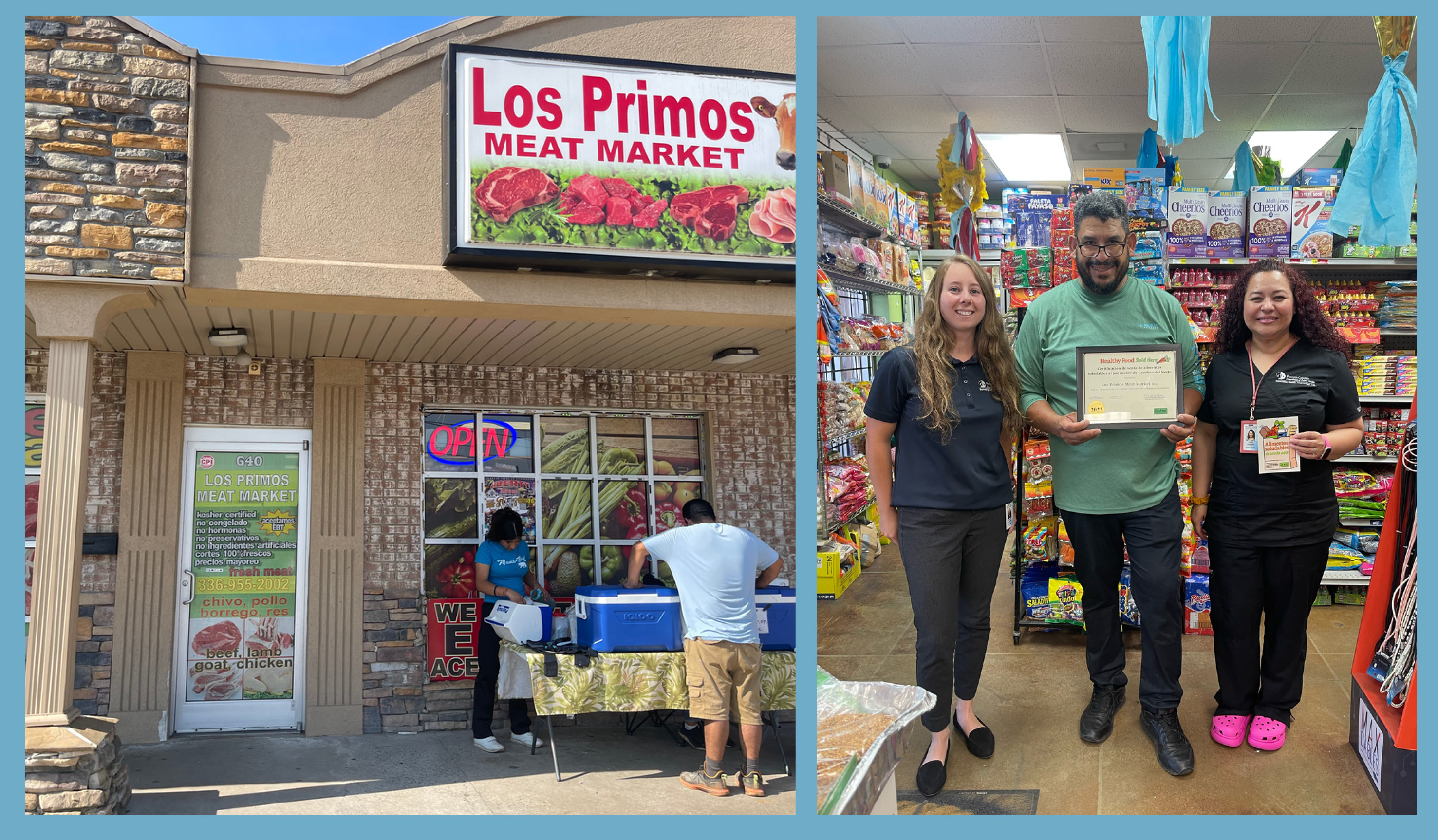
El Jacal II - 155 Jonestown Rd Winston-Salem, NC 27104
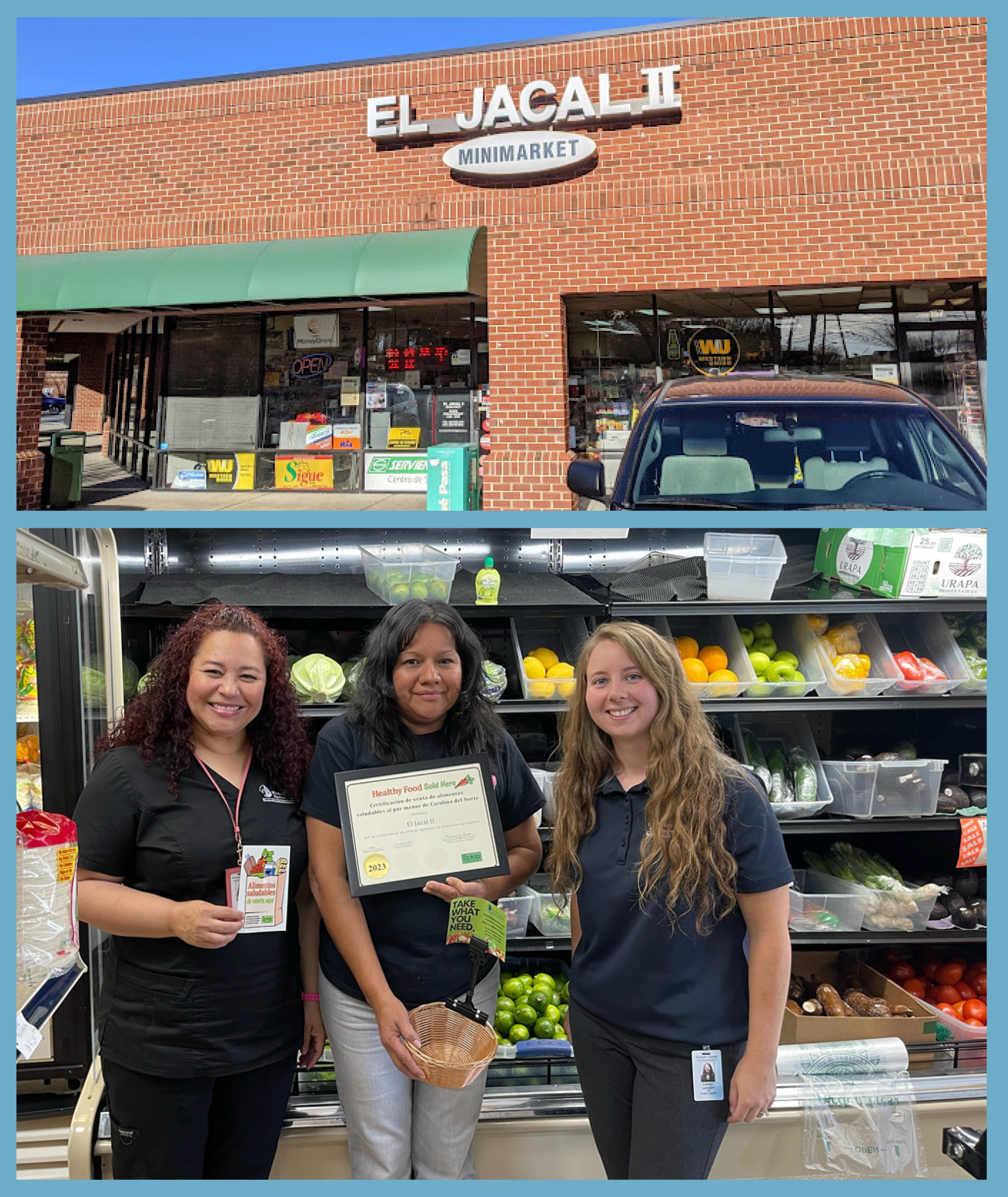
Tienda Latina Los Juanes - 373 Jonestown Rd Winston-Salem 27104
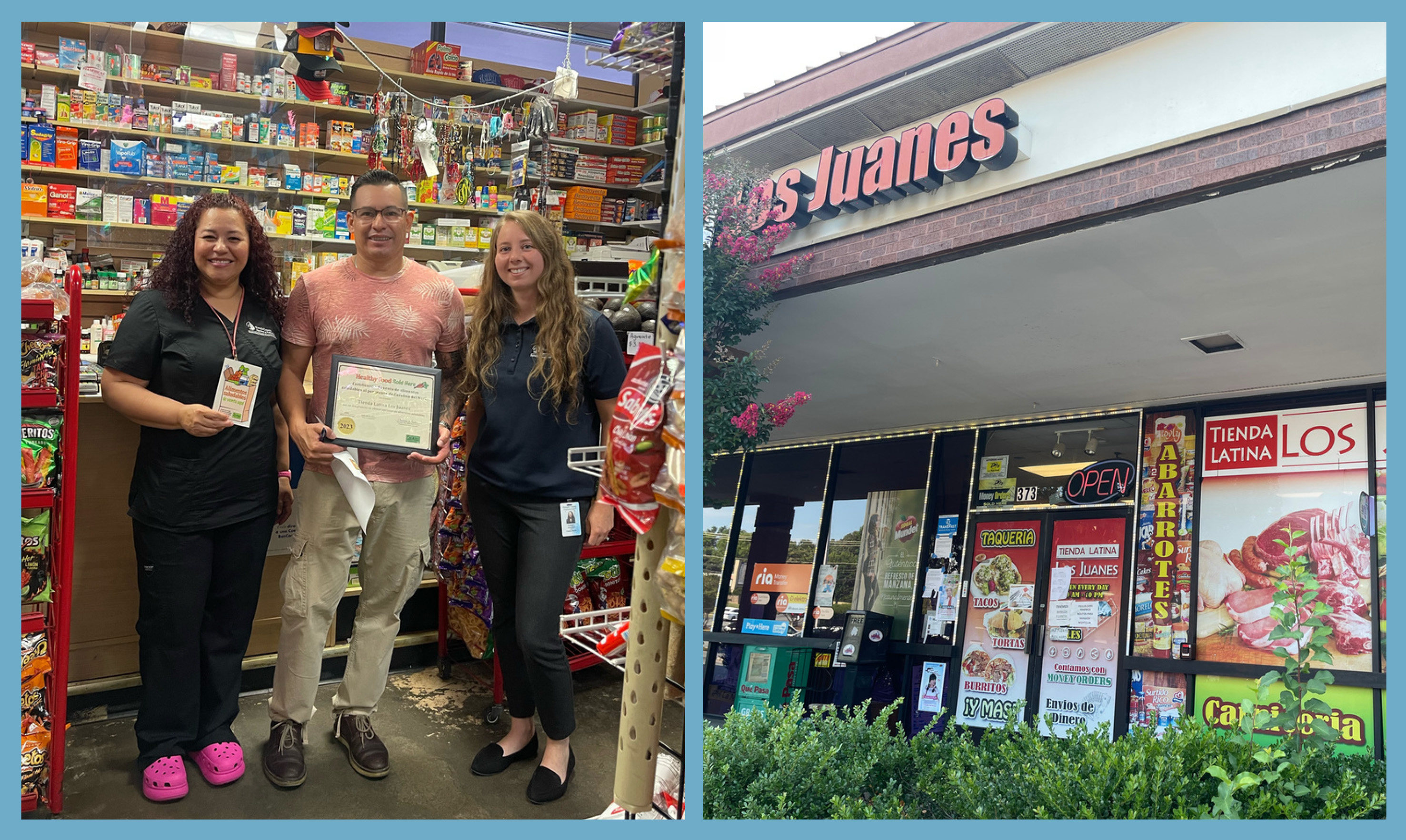
If you are interested in volunteering in the community garden or you are a storeowner interested in the program, please email Katie at johnsoky@forsyth.cc.






